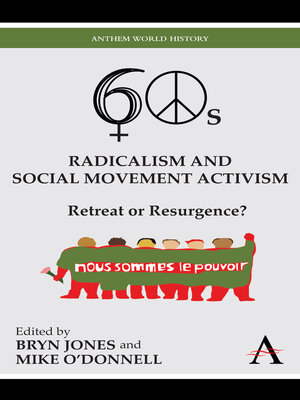Sixties Radicalism and Social Movement Activism
ebook ∣ Retreat or Resurgence? · Key Issues In Modern Sociology
By Bryn Jones

Sign up to save your library
With an OverDrive account, you can save your favorite libraries for at-a-glance information about availability. Find out more about OverDrive accounts.
Find this title in Libby, the library reading app by OverDrive.



Search for a digital library with this title
Title found at these libraries:
| Library Name | Distance |
|---|---|
| Loading... |
This book's four main aims are to examine: firstly, why movements happened in the socio-historical context of sixties' radicalism; secondly, its distinctive legacy of crucial, cultural, societal and political interconnections; thirdly, continuing links between seminal ideas and movements and socio-political activism today; fourthly little-discussed national instances and divergent impacts of sixties radicalism, in relation to contemporary 'global' social movements. A conclusion traces all these dimensions from current social movements back to sixties radicalism's pioneering upheavals.
|Unlike many partisan accounts of the nineteen sixties this book aims to give a considered explanation of the context in which the sixties radical movements arose and, also, their significance from the standpoint of various nations' actors, often ignored by North American and West European standpoints. Secondly, it examines how the radical decade sowed the seeds of various liberation or 'rights movements' – initially in the West but also globally as movements became increasingly diffused. Contributors' varied international backgrounds and specialities provide expertise in examining the international context. Thirdly, many nineteen sixties' radicals' values and strategies recur in contemporary social movements; albeit in different technological and, post 9/11, political and cultural environments. Unravelling similarities and differences is a key theme. Fourthly, many participants in sixties radicalism saw it as 'cultural' as well as 'political' and in some historical treatments as primarily or 'only' cultural. Detailed examinations of this perspective involve critical discussion – particularly in the light of the allegedly 'mere' (i.e. apolitical) cultural hedonism and escapism of youth in the nineteen eighties and nineties. Contrarily, the contributions here assess resonances between the radical/libertarian emphasis on civil society 'freedoms' in sixties' cultural radicalism and, arguably, today's more self-consciously political global human rights movement. The conclusion suggests that, in some senses, the sixties live on today in discursive and political themes.







